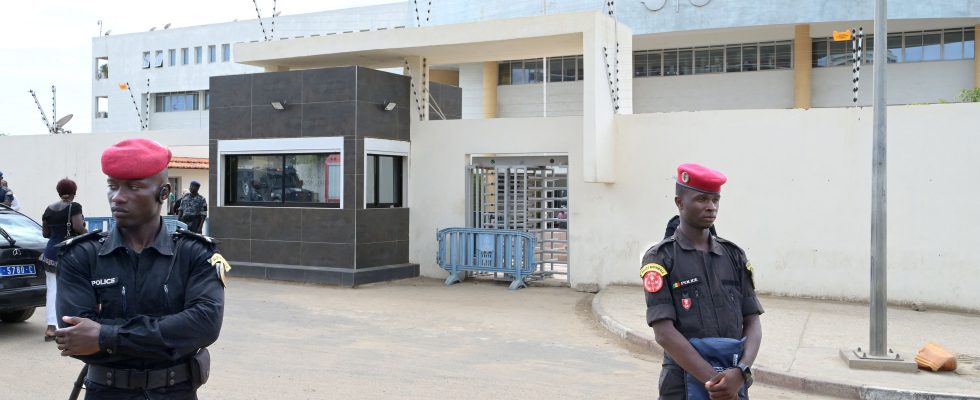Senegal, a country reputed to be stable, has been experiencing its worst troubles for several weeks after the conviction on June 1 of opponent Ousmane Sonko to two years in prison in a sex scandal, a verdict which makes President Macky Sall’s opponent ineligible in the state. The noose is tightening around the 2024 presidential candidate: his participation in the ballot is more than ever hampered by his detention, the dissolution of his party and ongoing legal proceedings. The Express takes stock.
Ousmane Sonko in detention
Ousmane Sonko shouts at the plot of President Macky Sall to dismiss him from the presidential election of 2024. The Senegalese head of state, elected in 2012 for seven years then re-elected in 2019 for five years, will not present himself in this election. His fiercest opponent sees the opening of a third legal proceeding against him. Aged 49, adored by young people and carrying an “anti-system” program advocating in particular a rebalancing of relations with European countries including France, Ousmane Sonko was charged and imprisoned on Monday July 31 for various crimes including call for an insurrection that provoked killings justifying the dissolution of his party.
“It’s a joke,” reacted Me Ciré Clédor Ly to the detention of his client on eight counts. The lawyer denounced “a plan which was formed, thought out, planned and which was executed”.
The politician who came third in the 2019 presidential election risks, according to lawyers, five to 20 years in prison with this new legal procedure, which is in addition to two other convictions.
The opponent, who is continuing his hunger strike which began on Sunday, was notably sentenced on June 1 to two years in prison in a morals case, a verdict which makes him ineligible, according to lawyers. He was sentenced on May 8 to a six-month suspended prison sentence after an appeal trial for defamation, a sentence likely to strike him as ineligible, even if he has not yet exhausted his appeals. before the Supreme Court.
Less than two hours after the sword of justice Monday, that of the government fell on Pastef, the party of Ousmane Sonko, with the announcement of its dissolution. The authorities accuse Pastef of having “frequently called on his supporters to insurrectionary movements” with “serious consequences, including numerous losses of human life”, in a press release published Monday on social networks.
“It’s impossible for Ousmane Sonko to stand in the presidential election. Pastef does not have the political means to establish a favorable balance of power” for a candidacy of Ousmane Sonko, the anthropologist told AFP. and political analyst Abdou Ndukur Kacc Ndao.
Two dead in protests
This placement in detention angered pro-Sonko supporters. Two people were killed Monday in Ziguinchor, southern Senegal, during protests following the indictment, the interior ministry said.
“Two lifeless male bodies” were discovered in Ziguinchor, the main town of Casamance, of which Ousmane Sonko is the mayor, the ministry said in a statement. In this city, groups of mobile youths threw stones at the police who tried to disperse them with tear gas canisters. The Ministry of the Interior “calls on the populations for calm and serenity and informs them that all measures have been taken to preserve peace and tranquility in the country”, according to this same document.
Sporadic clashes also erupted early Monday evening at Parcelles Assainies, in the suburbs of Dakar, where young people attacked the police who dispersed them with tear gas, AFP journalists noted. . “Free Sonko!”, chanted these young people who burned tires and erected stone dams on the road.
Internet cut
The Senegalese authorities also temporarily cut internet access on mobile phones on Monday, highlighting the “dissemination of hateful and subversive messages” on social networks, after calls for demonstrations against the arrest of Ousmane Sonko.
“Due to the dissemination of hateful and subversive messages relayed on social networks in a context of threat of disturbing public order, the mobile data internet is temporarily suspended during certain time slots from Monday July 31”, announced in a press release the Minister of Telecommunications and the Digital Economy, without further details on these times.
Amnesty International denounced this restriction, which it considers “an attack on freedom of information”, and called on the authorities to “restore the internet”, in a message on Twitter (renamed X).
